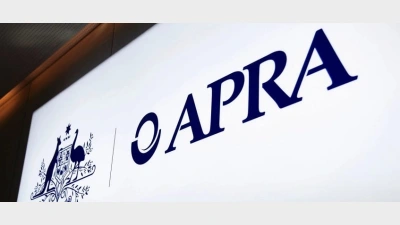Active funds face continued exodus



Just three active asset managers are expected to attract net inflows over the coming year, according to Morningstar, with those specialising in fixed income or private markets best positioned to benefit.
In its Q2 2025 Australian Asset Manager report, Morningstar surveyed seven active managers – Challenger, GQG, Insignia, Magellan, Perpetual, Pinnacle, and Platinum – finding that average 12-month net flows declined by 4 per cent of funds under management (FUM) in the March quarter, marking a second consecutive quarterly fall following a 3.4 per cent drop in the prior period.
Fixed income – which also includes private debt, diversified credit and unconstrained fixed income – and cash are the only products managed by traditional active managers which are reporting positive flows with equities, multi-asset and “other” all reporting outflows.
This was attributed to investors seeking defensive positions in light of concerns around US tariffs and trade policy which dented their risk appetite and pushed defensive asset allocations above historical averages.
Equity analyst Shaun Ler said: “Among active managers, firms focused on conventional equity, fixed income and multi-asset strategies remain at risk, given their replicability by passive vehicles. Conversely, firms specialising in less commoditised segments – such as private credit or specialised fixed income strategies – are better-positioned to grow.
“The US administration’s fickle stance on trade policy, geopolitical tensions and supply chain disruptions create a challenging backdrop for capital markets. Fund flows across our coverage deteriorated for the second quarter into March 2025, and we expect medium-term flows to be lumpier than before as tariff uncertainties persist and rate cuts become more volatile.”
Previous research by Betashares identified the same trend occurring in exchange-traded funds (ETF), with cash and fixed income ETFs reporting inflows of over $1 billion during May.
The only three active managers which it expects to see positive flows between FY2025–26 and FY28–29 are Pinnacle, Challenger and Insignia, with the other four expected to see outflows. In particular, Platinum Asset Management is forecast to lose more than 30 per cent of its funds under management per year over the period.
Even GQG Partners, which was previously identified by the research firm as a firm expected to increase its funds under management, thanks to its long-term performance track record, faces near-term challenges.
FUM at the firm has consistently risen since the start of the year after a period of outflows at the end of 2024, but its share price is down 23 per cent over the past year compared to gains of 9 per cent by the ASX 200.
Ler said: “As a group, our covered active managers lack the consistent outperformance needed to recapture market share lost to ETFs and industry funds. Most deliver only average peer-relative returns. Even GQG – despite a stronger long-term track record – faces near-term challenges, demonstrating the difficulty to consistently outperform.
“Competition remains intense, and firms will need to improve investment performance, realign incentive structures, pursue strategic partnerships, or increase investment in distribution to defend market share.”
Recommended for you
Assets held by Australia’s wealthy have reached record levels as Trump’s tariff shock triggered investor concern surpassing Covid-era highs.
APRA’s executive director has urged super funds to strengthen leadership, operational resilience and member focus as public trust in the system faces fresh challenges.
The firm has appointed Aware Super’s Damian Graham as group chief investment officer to unify its life and funds management teams.
Ethical super fund Australian Ethical has announced the appointment of Anthony Lane as chief operating officer.










